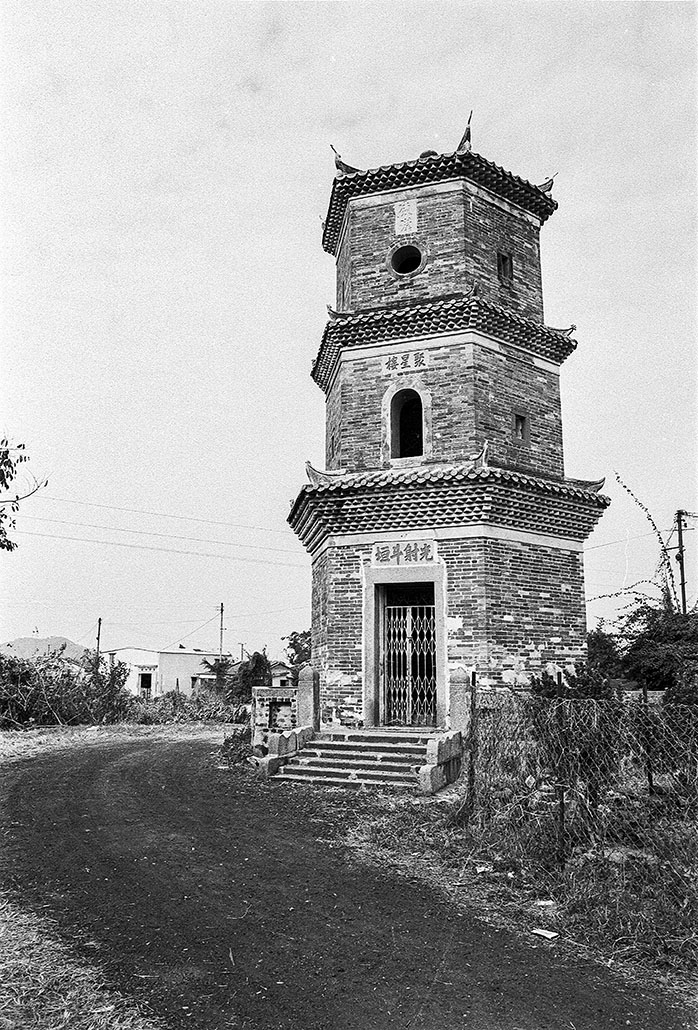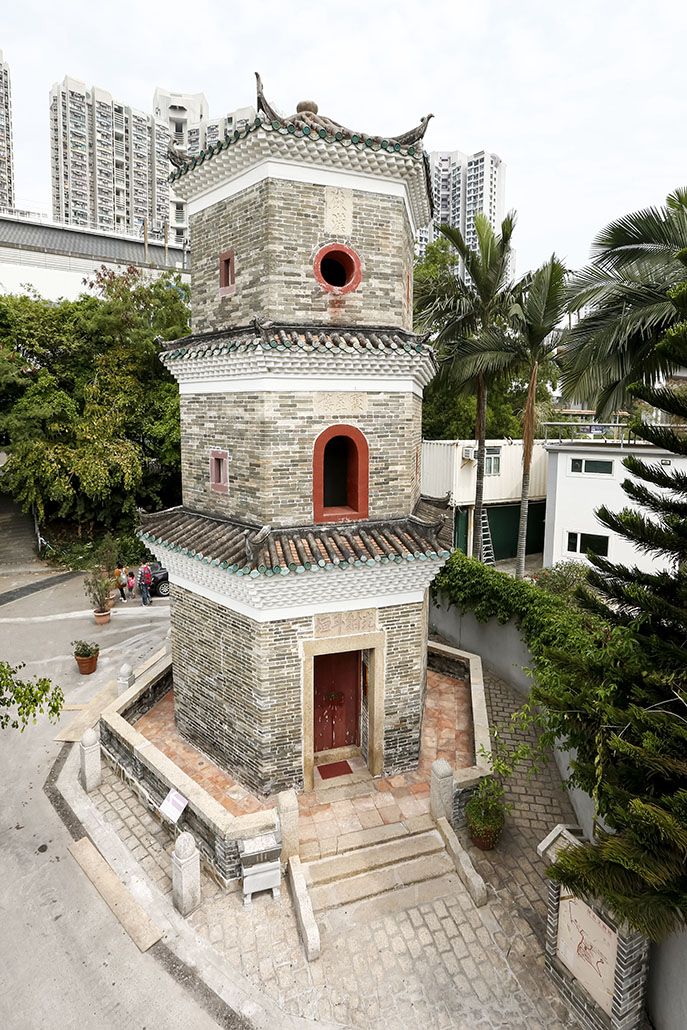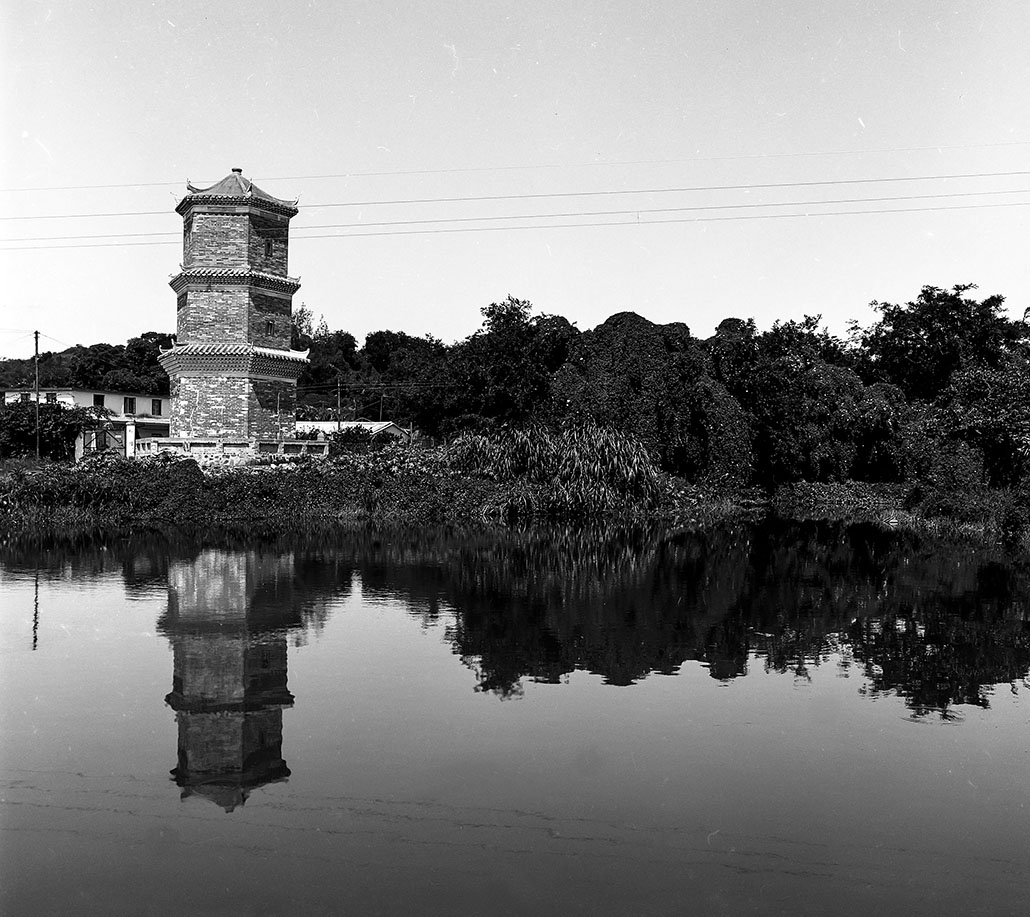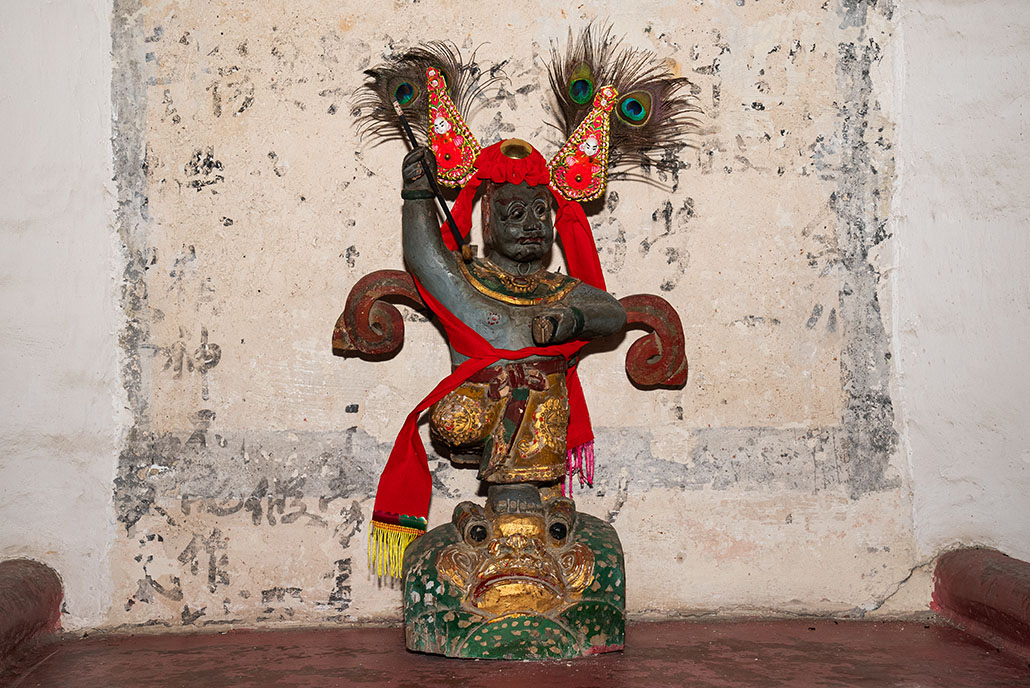Located in Ping Shan, Yuen Long, Tsui Sing Lau Pagoda (Pagoda of Gathering Stars) is a “literati pagoda” in traditional Chinese architecture. It was built more than 600 years ago during the reign of Hongwu of Ming dynasty (1368–1398) by Tang Yin-tung, the seventh generation ancestor of the Tang clan in Ping Shan. The three-storey, grey brick structure, enclosed by a grey-brick boundary wall, is Hong Kong’s only surviving hexagonal-shaped ancient pagoda. According to clan elders, the ancient pagoda was originally seven storeys high, but it was damaged in typhoon, so only the bottom three storeys remained.
The purpose of the construction of Tsui Sing Lau Pagoda – “to ward off evil spirits from the north, prevent floods and bring good fortune in scholarly pursuits” – reflects its close connection to traditional Chinese culture and the concept of fengshui. Members of the Tang clan refer to Tsui Sing Lau Pagoda as a “literati pagoda”. In alignment with the mountain form of Castle Peak, it works with fengshui to ensure success for clan members in the Imperial Civil Service Examinations. This confirms the importance attached to culture and education by the Tang clan of Ping Shan. Tsui Sing Lau Pagoda was built in the north of Ping Shan to expel evil from the north; it used to be situated at the estuary, facing Deep Bay, where it was intended to serve the function of suppressing the tides and preventing them from taking away the wealth of Ping Shan at low tides. This exemplifies the idea of “collecting water and gathering wealth” and reflects the villagers’ traditional respect for fengshui.
The entrance of Tsui Sing Lau Pagoda has a granite frame. There is an arched opening in the middle floor, and a round opening on the top floor. Each storey is separated by a grey-brick cornice with successive courses of prism-shaped decorations. There are inscriptions on each level of the main façade: Guang She Dou Yuan (Light shines straight onto the dippers and enclosures) on the ground floor, Ju Sing Lou (Pagoda of Gathering Stars) on the middle floor, and Ling Han (Over the Milky Way) on the top floor. Kwan Tai, the Martial God, and Man Cheong, the God of Literature, are revered on the first floor of the pagoda, and Fui Sing, the deity in control of success in the examinations, is worshipped on the upper floor. The reverence for Man Cheong and Fui Sing, both in charge of good fortune in scholarly pursuit, reflects the importance attached to culture and education by the Tang clan. Indeed, the Tang clan nurtured generations of talented individuals, including countless scholars and government officials.
Opening hours:
Monday and Wednesday to Sunday: 9am - 1pm and 2pm - 5pm
Closed on Tuesdays (except public holidays), Christmas Day, Boxing Day, New Year's Day and the first three days of Chinese New Year
Address:
Ping Shan, Yuen Long, New Territories.
Enquiry Hotline:
(852) 2208 4488





